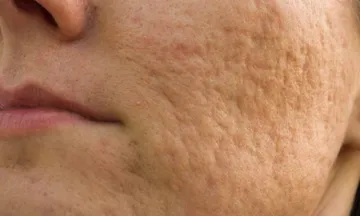How to deal with Diabetic Retinopathy?
Diabetic retinopathy is one of the most debilitating complications of diabetes. Proper management of diabetes and regular eye checkups is the only way to tackle with this problem effectively.
Diabetes is one of the most common lifestyle diseases in the world today. Almost all of us know of at least a relative or an acquaintance who suffers from this disease.
Diabetes is referred to as a multisystem disorder because it affects all the organs of our body from the eyes to the kidneys.
Diabetes affects the eyes leading to a condition called diabetic retinopathy. The blood vessels of the retina, the part of the eyes that is responsible for light sensitivity and vision, are affected.
Diabetic retinopathy affects people suffering from both type 1 and type 2 diabetes. The longer you have been suffering from the disease and the poorer the management of your sugars, the higher are the chances of suffering from diabetic retinopathy.
Pregnancy, tobacco, high cholesterol, and high blood pressure are the additional factors that can lead to an early onset of diabetic retinopathy.
How does an elevated sugar level affect the eyes?
When there is a large amount of sugar in your blood, it causes the blood vessels in the retina to swell. These swollen blood vessels cause blood to ooze out into the retina, leading to vision problems. To compensate for this, the eye tries to grow new blood vessels. These new vessels are, at most times, irregularly formed and leak easily, which again leads to further symptoms. The developing blood vessels also lead to scar formation, which pulls on the retina and may lead to retinal detachment.
Diabetes is called as 'The Silent Killer' for a very good reason. The complications of the disease begin early, and in the initial stages, more often than not, the symptoms are not visible. When the symptoms start manifesting themselves, it is an indication that the disease has spread its roots far deeper.
Symptoms to watch out for
- Blurred vision
- Floating black spots in front of the eyes
- Fluctuating vision
- Dark spots or invisible areas in your field of vision
- Difficulty identifying or distinguishing between colors
- Loss of vision.
If you can identify with any of the above symptoms, it would be best to see your doctor immediately.
Complications
If not detected in time, diabetic retinopathy may lead to serious complications like:
- Glaucoma
- Loss of vision
- Retinal detachment
- Vitreous hemorrhage
Managing blood sugar levels is the only way to prolong the onset of diabetic retinopathy. In the early stages of diabetic retinopathy, getting sugar levels under control can help in slowing the progress of the disease. The doctor may advise you to get your eyes checked regularly. In advanced cases, depending upon the extent of damage, surgery is advised. But, taking on homeopathy treatment in the initial stage, you can avoid surgery.
Homeopathic medicines for diabetes are primarily focused on maintaining ‘normal’ levels of insulin, or keeping conventional anti-diabetic drugs, at the minimum possible dosage and in preventing progression or complications of the disease.
The best part — homeopathic medicines for diabetes can be taken safely, along with your conventional or pharmaceutical medications, including insulin. One such research was conducted in Athens to see compatibility of homeopathy and conventional medicine in controlling diabetes.
A group of patients of diabetes mellitus type-2 were treated with Daonil, a conventional medicine, and a placebo (Group-1) and Daonil and homeopathy (Group-2). Group-1 showed 47 per cent improvement; Group-2 showed a hugely impressive 97 per cent improvement
What’s more, some people eat right and exercise, but they cannot stabilise their blood sugar. Homeopathic treatment is effective in such cases too. The appropriate homeopathic remedy will help to balance blood sugar levels naturally, without side- effects.
Well, so by now if you are convinced with the healing benefits of homeopathy, we also give you some self-help tips that will help you manage your diabetes better.
Self-Help
- Eat healthy — high fibre food, fruits and vegetables, and foods that are low in fat, salt and sugar
- Exercise regularly, 20-30 minutes, 4-5 times a week
- Keep your family and friends informed of your condition. Wear a badge, or diabetic card; this will be useful during an emergency
- Avoid smoking
- Avoid, or reduce, your alcohol ‘fix,’ if any
- Take care of your feet. Diabetics are prone to develop problems with their feet, including infections and foot ulcers. Wear shoes approved by a foot, ankle and lower leg medical specialist [podiatrist, or chiropodist]
- Keep your nails short [you can scratch and ‘infect’ your skin otherwise] and wash your feet with warm water every day
- Have regular eye tests — at least twice a year to check for retinopathy.






